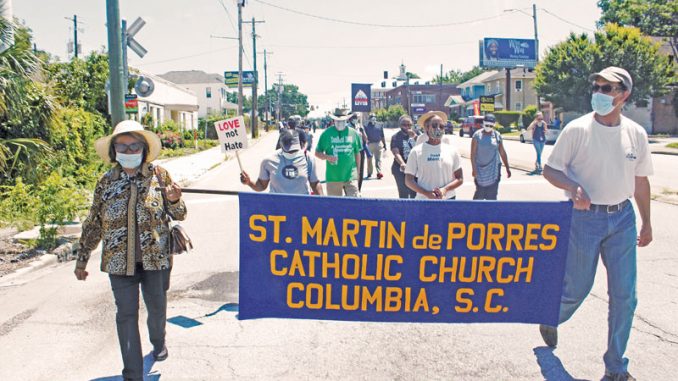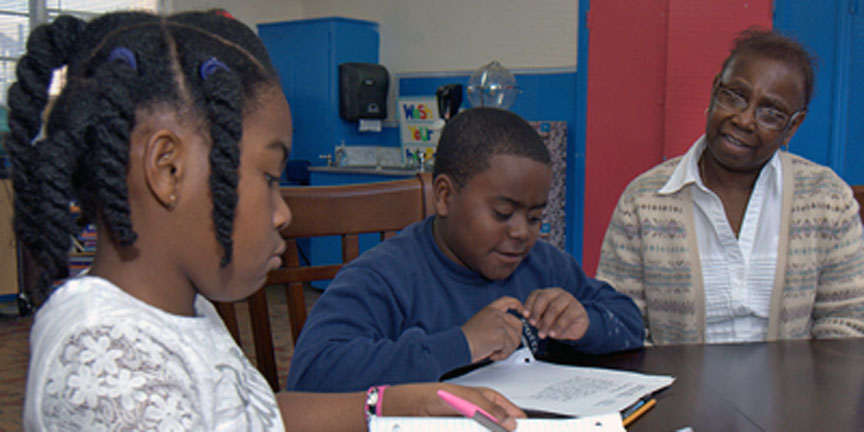
COLUMBIA—Hundreds of people marched through downtown Columbia in 90-degree heat on June 20, but no one was complaining. Instead, they chanted for justice and sang hymns and spirituals.
That was the atmosphere at the “Faith for Black Lives March” organized by the Seventh District of the African Methodist Episcopal Church (AME) in South Carolina. The event was the idea of Bishop Samuel Green, the denomination’s state leader, and came at the end of a “Week of Action” full of events commemorating Juneteenth.
Juneteenth, which falls on June 19, marks the day when the last group of slaves in the state of Texas finally learned they were free.
The ecumenical event was billed as a peace march. Bishop Green called on people to bring their witness of faith and prayer to the public square as part of the ongoing wave of protests and activism that has swept the country since the death of George Floyd in Minneapolis on Memorial Day.
In the weeks leading up to the event, waves of protesters ranging from college athletes to teachers filled the streets and met at the Statehouse to demand change. At this event, every speaker called on God and talked about the importance of prayer.
Men, women and children marched just over a mile, from Allen University — a historically Black institution founded in 1870 — to the Statehouse, where they participated in a rally filled with music, prayer and speeches from priests and ministers, legislators and community leaders.
Rules for the event called for everyone to wear face masks and practice social distancing to ward off COVID-19. The crowd stretched as far as the eye could see down parts of Taylor Street. Volunteers handed out water and fans to battle the heat.
The march drew faith leaders from several different denominations, including AMEs, United Methodists, Evangelical Lutherans, Baptists, Presbyterians, and Catholics. Msgr. C. Anthony Droze, vicar general for the Diocese of Charleston, joined other clergy in delivering prayers calling for an end to racism and an increase in justice for all people in the United States.
AME Seventh District leaders and members of the Faith for Black Lives group also revealed a list of issues called the Jubilee Justice Agenda, which urges legislators to address reforms in police and criminal justice, housing, health care and education.
During his prayer, Msgr. Droze asked God to help people everywhere have the courage to uproot systemic racism and work on issues that affect society’s most vulnerable, including predatory lending, low wages, gentrification, and the lack of affordable housing.
“Wrap your mantle of justice around the issues of our time,” Msgr. Droze said. “Find the lonely islands of poverty in this state and transform them into oases of justice.”
Afterward, Msgr. Droze said he was grateful to see such a large turnout of people from different denominations.
“One of the speakers today said that our voices are clearer when we speak as one, and this march is an example of the Body of Christ coming together to speak as one,” he said.
Other clergy present included Father Sandy McDonald, pastor of St. John Neumann Church in Columbia; and Father Michael Okere, diocesan vicar for Black Catholics and pastor of St. Martin de Porres Church in Columbia. Members of their parishes and others in the Midlands also attended the march, as well as Catholics who travelled from as far away as Aiken and Greenville to add their voices to the call for peace.
Virginia Cummings, a member of St. Martin de Porres Church, teamed up with another parishioner to march and carry their church’s banner. She was joined by her husband Roosevelt Cummings once the crowd reached the Statehouse grounds.
“It was just a lift for me spiritually to see everybody together praising God because with everything going on in the world right now, we often forget that we need to look to Him because He is in control,” she said. “To see everybody together today, praying for each other and for the world, it made you feel like there is hope.”


